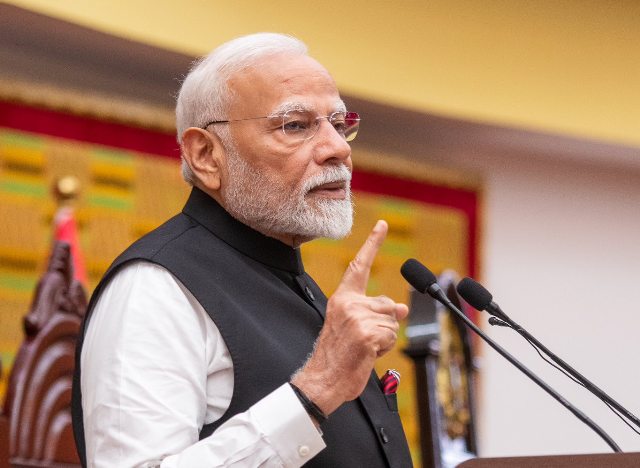Indian Prime Minister Narendra Modi has called for urgent and credible reforms in global governance structures, emphasizing the need for the voices and priorities of the Global South to be placed at the heart of international decision-making.
Addressing the Parliament of Ghana on Thursday, July 3, Prime Minister Modi warned that institutions established in the aftermath of World War II are no longer equipped to handle the challenges of the modern era.
He said, “The world order created after the Second World War is changing fast. The revolution in technology, the rise of the Global South, and shifting demographics are contributing to its pace and scale.”#
Also Read: ‘Press conference antics’ in Parliamentary Chamber must stop -Speaker slams Afenyo-Markin
He argued that many of the structural imbalances inherited from the colonial era continue to exist in new forms, undermining the stability and inclusivity of the global system.
“The challenges humanity has faced in earlier centuries, such as colonialism, persist in different forms. Institutions created in the last century are struggling to respond,”** he noted.
Modi’s remarks highlighted India’s longstanding advocacy for a multipolar world and fair representation for emerging economies in international institutions such as the United Nations, the World Bank, and the International Monetary Fund.
According to him, progress cannot come without giving voice to the Global South, declaring, “We need more than slogans. We need action.”
Citing India’s leadership during its G20 presidency in 2023, Modi pointed to the historic inclusion of the African Union as a permanent member of the G20 as a step toward correcting historical imbalances.
“We are proud that the African Union became a permanent member of the G20 during our presidency,” he said.
The Prime Minister also reiterated India’s guiding philosophy of Vasudhaiva Kutumbaka – “the world is one family”—which he said shapes the country’s international engagement and development partnerships.
“During India’s G20 Presidency, we worked with the vision, ‘One Earth, One Family, One Future’. This inclusive spirit powers our global initiatives, from climate action to public health to renewable energy,” Modi added.
He referred to India’s support for inclusive international programs such as the International Solar Alliance, the Global Biofuel Alliance, and One World One Health, all aimed at addressing global challenges and empowering developing countries through collective action.
Framing India’s global engagement as a partnership rooted in solidarity rather than charity, Modi said India’s development cooperation is demand-driven and focused on empowerment.
“Our philosophy is humanity first. We believe in: ‘May all be happy, may all be free from illness, may all feel what is auspicious, may no one suffer in any way,’” he stressed.
He reaffirmed India’s commitment to South-South cooperation and stressed that global development must be inclusive and democratic and not dictated by a few powerful nations.
According to him, India’s objective is not just to invest, but to empower and help develop self-sustaining ecosystems.


